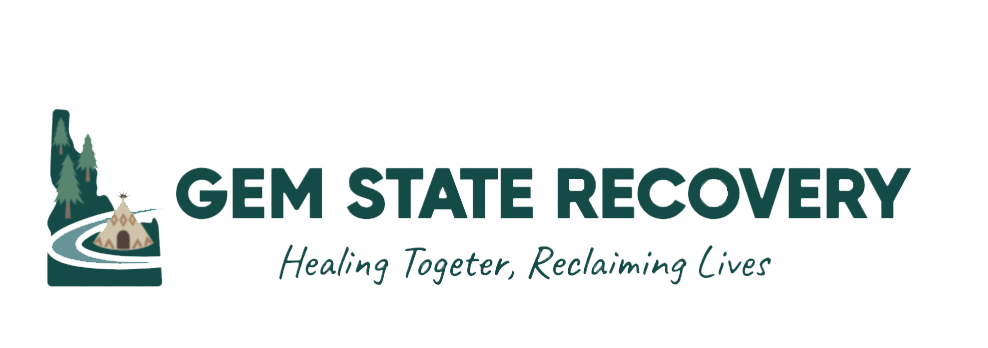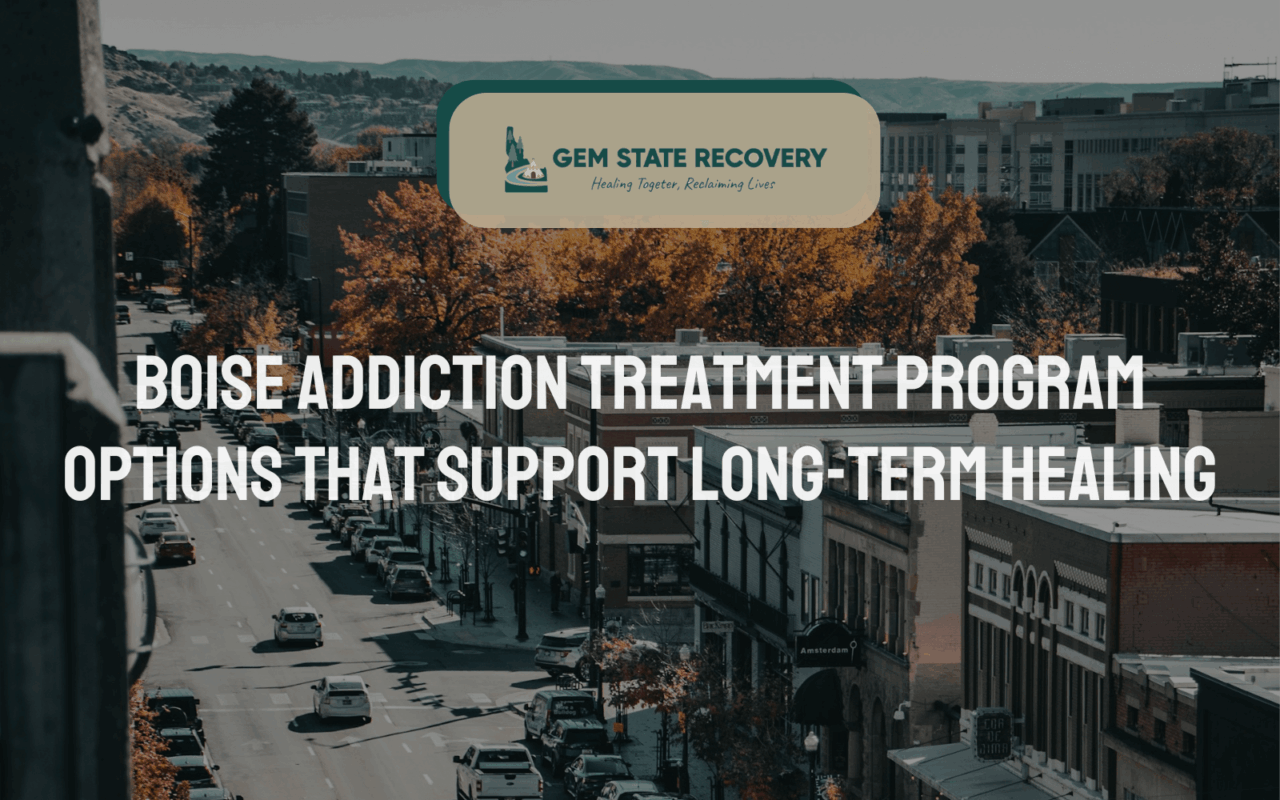Addiction is a complex disease that affects millions of Americans, and finding the right treatment approach can make the difference between temporary sobriety and lasting recovery. For individuals and families in Idaho’s capital city seeking comprehensive care, understanding the full spectrum of available services is essential. A quality Boise addiction treatment program offers more than just detoxification—it provides a continuum of care designed to address the physical, psychological, and emotional aspects of substance use disorders while building a foundation for long-term healing. Recovery is not a one-size-fits-all journey.
Boise Addiction Treatment Program Options That Support Long-Term Healing
Each person struggling with addiction brings unique circumstances, co-occurring mental health conditions, trauma histories, and personal strengths to their treatment experience. The most effective Boise addiction treatment program options recognize this individuality and offer personalized care plans that adapt to changing needs throughout the recovery process. From the initial stages of medical detoxification through ongoing alumni support, comprehensive treatment programs create multiple touchpoints that reinforce healthy behaviors and provide safety nets during vulnerable moments.
Understanding the Continuum of Care in Addiction Treatment
The path to recovery typically involves several levels of care, each serving a specific purpose in the healing journey. A comprehensive Boise addiction treatment program understands that successful outcomes depend on matching treatment intensity to individual needs while allowing for smooth transitions between care levels as progress occurs.
Detox and Intervention Assistance: The Critical First Steps
For many individuals, the journey toward recovery begins with recognizing the need for help and taking that courageous first step. Intervention assistance provides families with professional guidance to approach their loved ones about substance use in a compassionate, structured way that encourages treatment acceptance rather than defensiveness. Professional interventionists help families prepare emotionally, establish clear boundaries, and present treatment options in a loving but firm manner that demonstrates the seriousness of the situation. Medical detoxification represents the next critical phase where the body clears itself of substances while under medical supervision. This process addresses the physical dependence that develops with regular substance use. A quality Boise addiction treatment program offering detox services provides:
- 24/7 medical monitoring to ensure safety during withdrawal
- Medication-assisted treatment to reduce withdrawal symptoms and cravings
- Emotional support during a physically and psychologically challenging time
- Assessment of co-occurring mental health conditions that may complicate withdrawal
- Immediate transition planning to appropriate levels of continuing care
Detoxification alone is not treatment—it’s simply the first step that prepares individuals for the therapeutic work ahead. Without follow-up care, relapse rates after detox alone exceed 90%, which is why seamless transitions to further treatment are essential.
Inpatient and Residential Treatment: Immersive Healing Environments
Following detoxification, many individuals benefit from the structured, immersive environment of residential care. Inpatient treatment within a Boise addiction treatment program removes individuals from triggering environments and provides intensive therapeutic intervention in a safe, supportive setting. Residential treatment typically lasts 30, 60, or 90 days, though length of stay should be determined by individual progress rather than arbitrary timeframes. The residential treatment experience includes:
- Round-the-clock access to medical and mental health professionals
- Individual therapy sessions addressing underlying trauma, mental health conditions, and personal triggers
- Group therapy fostering peer support and reducing isolation
- Educational programming about the disease of addiction and recovery principles
- Development of coping skills applicable to real-world situations
- Structured daily routines that establish healthy habits
- Nutritious meals and physical wellness activities supporting overall health
- Family therapy sessions repairing relationships damaged by addiction
This immersive approach allows individuals to focus entirely on recovery without the distractions, responsibilities, and triggers of daily life. The therapeutic intensity of residential care makes it particularly appropriate for individuals with severe addictions, multiple failed treatment attempts, unstable home environments, or significant co-occurring mental health conditions.
Partial Hospitalization Programs: Bridging Intensive and Outpatient Care
A partial hospitalization program (PHP) serves as an important bridge between residential treatment and less intensive outpatient services. This level of care within a Boise addiction treatment program provides hospital-level services without overnight stays, allowing individuals to begin reintegrating into their home environments while maintaining strong clinical support. PHP typically involves:
- Five to seven days per week of programming
- Six to eight hours of daily therapeutic activities
- Medical oversight and medication management
- Individual and group therapy sessions
- Skill-building activities focused on employment, relationships, and independent living
- Evening returns home to practice new skills in real-world settings
- Gradual assumption of normal responsibilities with continued support
This transitional level of care reduces the shock of moving from highly structured residential treatment directly to weekly outpatient sessions, providing a safety net during a vulnerable period of recovery.
Outpatient Treatment: Flexibility for Real-World Recovery
Outpatient services represent the most flexible level of care, allowing individuals to maintain work, school, and family responsibilities while receiving ongoing therapeutic support. A comprehensive Boise addiction treatment program offering outpatient services recognizes that recovery is a long-term process requiring sustained support even after intensive treatment phases conclude. Outpatient treatment includes:
- Individual therapy sessions weekly or bi-weekly addressing ongoing challenges
- Group counseling providing peer support and accountability
- Medication management for co-occurring mental health conditions
- Urinalysis and alcohol testing ensuring accountability
- Crisis intervention when challenges arise
- Skills training for stress management, communication, and problem-solving
- Flexible scheduling accommodating work and family obligations
Outpatient care may serve as step-down treatment after more intensive levels or as primary treatment for individuals with strong support systems, stable environments, and less severe substance use disorders.

Evidence-Based Therapeutic Approaches Transforming Lives
The most effective Boise addiction treatment program options incorporate evidence-based therapeutic modalities proven through research to support lasting recovery. These specialized approaches address not just the substance use itself but the underlying psychological factors that often drive addictive behaviors.
Eye Movement Desensitization and Reprocessing (EMDR)
Trauma frequently underlies substance use disorders, with individuals turning to drugs or alcohol to numb painful memories or manage overwhelming emotions. EMDR is a specialized therapeutic approach that helps individuals process traumatic experiences by using bilateral stimulation—typically eye movements—to help the brain reprocess traumatic memories in adaptive ways. This technique has shown remarkable effectiveness in treating post-traumatic stress disorder, which commonly co-occurs with addiction. By addressing unresolved trauma through EMDR, individuals often experience reduced cravings and decreased need for substances as emotional numbing agents.
Cognitive Behavioral Therapy (CBT)
CBT represents one of the most widely researched and effective approaches for treating both addiction and co-occurring mental health conditions. This therapeutic model helps individuals identify thought patterns that lead to destructive behaviors, then develop healthier cognitive and behavioral responses. Within a Boise addiction treatment program, CBT helps clients recognize triggers, challenge irrational beliefs about substance use, develop coping strategies, and build problem-solving skills applicable across life domains. The structured, goal-oriented nature of CBT makes it particularly effective for addressing the distorted thinking patterns that perpetuate addiction.
Dialectical Behavior Therapy (DBT)
Originally developed for treating borderline personality disorder, DBT has proven highly effective for individuals with emotion regulation difficulties, which commonly accompany substance use disorders. This therapeutic approach teaches four core skill sets: mindfulness, distress tolerance, emotion regulation, and interpersonal effectiveness. These skills directly address common relapse triggers by helping individuals manage intense emotions without turning to substances, tolerate uncomfortable situations without escape, and navigate interpersonal conflicts that might otherwise trigger use.
Supporting Long-Term Success Through Comprehensive Services
Beyond therapeutic modalities, a truly comprehensive Boise addiction treatment program recognizes that lasting recovery requires addressing practical needs, building support networks, and maintaining ongoing connection to treatment resources.
Case Management: Navigating Complex Needs
Substance use disorders rarely exist in isolation—they’re typically accompanied by legal issues, employment challenges, housing instability, medical conditions, and fractured relationships. Case managers serve as advocates and guides helping clients navigate these complex, interconnected challenges. They coordinate with legal systems, connect clients with community resources, assist with employment searches, facilitate housing placement, and ensure continuity of care across multiple service providers. This holistic support removes barriers to recovery success and helps individuals rebuild stable, productive lives.
Family Support and Therapy
Addiction affects entire family systems, not just the individual using substances. Family members often develop their own unhealthy patterns trying to cope with a loved one’s addiction—enabling behaviors, codependency, and trauma responses that can inadvertently perpetuate the problem. A quality Boise addiction treatment program includes family programming that educates loved ones about addiction, teaches healthy communication patterns, establishes appropriate boundaries, and begins healing damaged relationships. Family involvement significantly improves treatment outcomes and creates a supportive home environment conducive to sustained recovery.
Alumni Programs: Lifelong Connection and Support
Recovery doesn’t end when formal treatment concludes. Alumni programs provide ongoing connection to the treatment community, offering monthly meetings, social events, volunteer opportunities, and continued access to resources. These programs combat the isolation that often precedes relapse, maintain accountability, celebrate recovery milestones, and remind individuals of how far they’ve come. The sense of belonging fostered through alumni programming creates a recovery-oriented social network replacing former using relationships.
Relapse Prevention: Building Skills for Lifelong Recovery
Relapse prevention education represents a critical component of any comprehensive Boise addiction treatment program. Rather than viewing relapse as failure, effective programs teach clients to recognize early warning signs, identify high-risk situations, develop specific coping strategies, and create detailed relapse prevention plans. Clients learn to distinguish between emotional, mental, and physical relapse stages, intervening earlier when course correction is simpler. This education reduces shame around struggles, normalizes the challenges of recovery, and provides concrete tools for navigating vulnerable moments without returning to active addiction.
The Importance of Dual Diagnosis Treatment
Many individuals seeking help for substance use disorders also struggle with co-occurring mental health conditions such as depression, anxiety, bipolar disorder, or post-traumatic stress disorder. In fact, research indicates that approximately 50% of people with severe mental health conditions also experience substance use disorders at some point in their lives. A comprehensive Boise addiction treatment program must address both conditions simultaneously for treatment to be effective.
When mental health conditions go untreated, they often trigger relapse as individuals attempt to self-medicate uncomfortable symptoms with drugs or alcohol. Conversely, when only mental health conditions receive treatment while substance use continues, psychiatric symptoms remain difficult to manage and medications may be less effective. Integrated dual diagnosis treatment within a Boise addiction treatment program provides:
- Comprehensive psychiatric evaluation identifying all co-occurring conditions
- Medication management addressing both mental health symptoms and cravings
- Therapeutic approaches targeting the interconnection between conditions
- Education helping clients understand how their diagnoses interact
- Coordinated care with all providers working from a unified treatment plan
This integrated approach recognizes that addiction and mental illness are not separate problems requiring separate solutions but interconnected conditions that must be addressed holistically. By treating the whole person rather than isolated symptoms, dual diagnosis programming significantly improves long-term outcomes and reduces the revolving door of repeated treatment episodes.
Conclusion
Selecting appropriate treatment is one of the most important decisions an individual or family will make. The ideal Boise addiction treatment program offers a full continuum of care allowing smooth transitions between levels as needs change, incorporates multiple evidence-based therapeutic approaches rather than relying on a single modality, addresses co-occurring mental health conditions simultaneously with substance use disorders, involves families in the healing process, provides practical support through case management, and maintains connection through alumni programming. Recovery is possible, and thousands of individuals who once felt hopeless about their addiction are now living healthy, fulfilling lives.
The journey begins with reaching out, asking for help, and taking that first courageous step. With comprehensive treatment addressing the full scope of needs, sustained healing becomes not just possible but probable. The investment in quality care today creates the foundation for a lifetime of wellness, restored relationships, and rediscovered purpose. For those ready to begin this transformative journey, our website makes the process more convenient and accessible. Taking the first step towards health and healing is always a good investment in your future.





